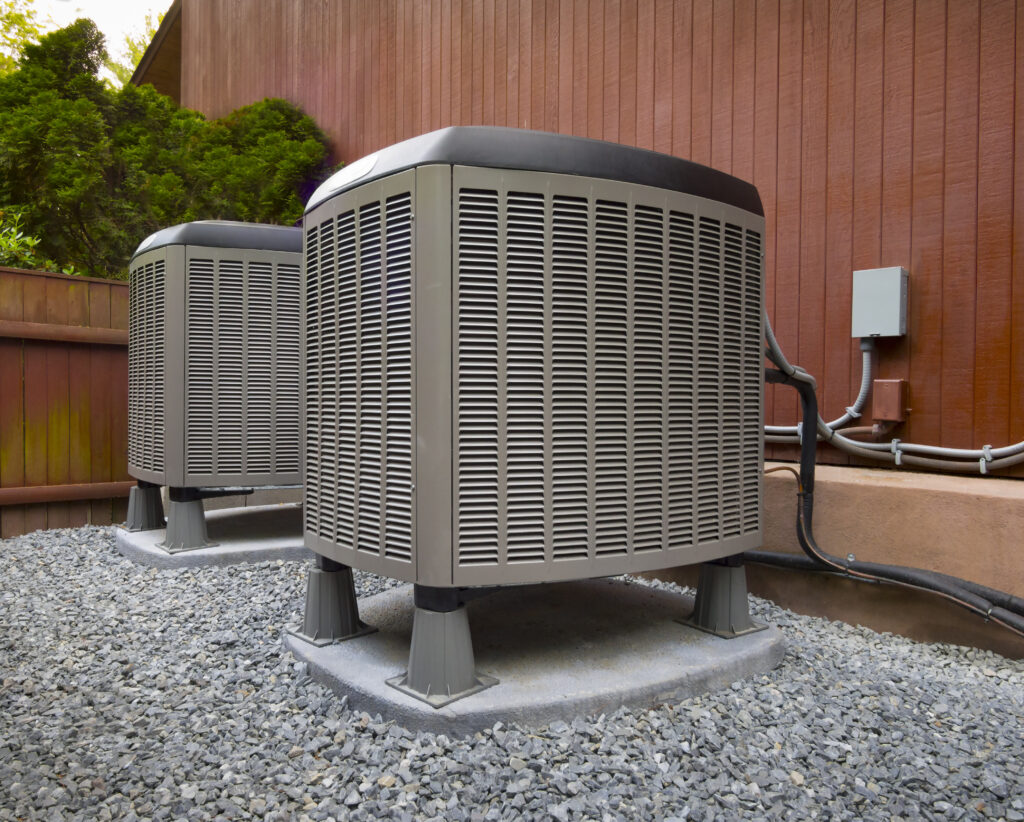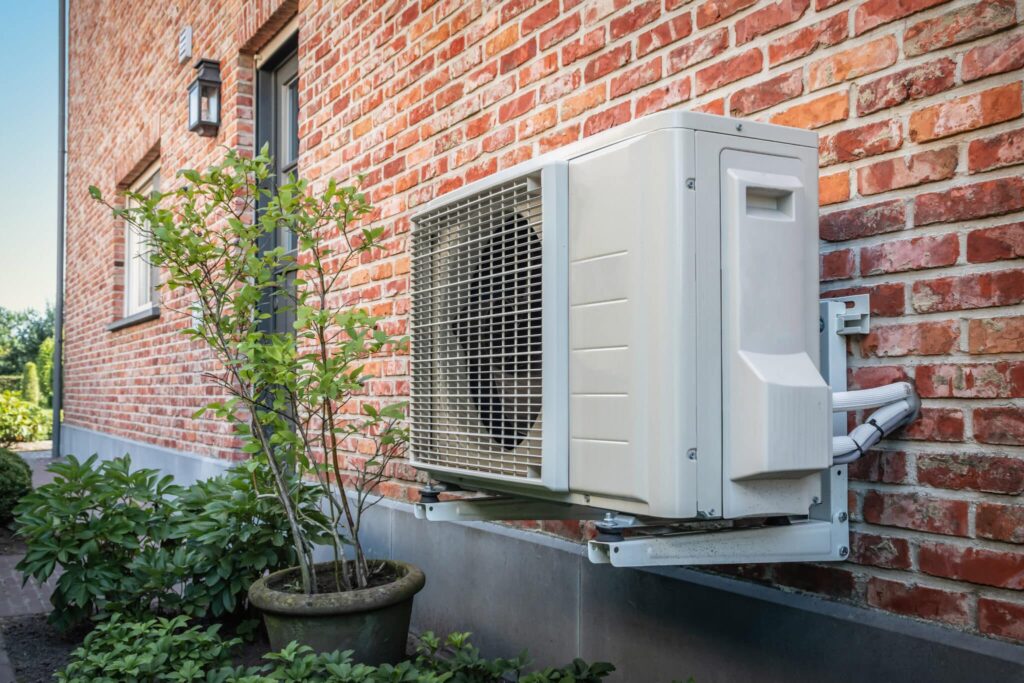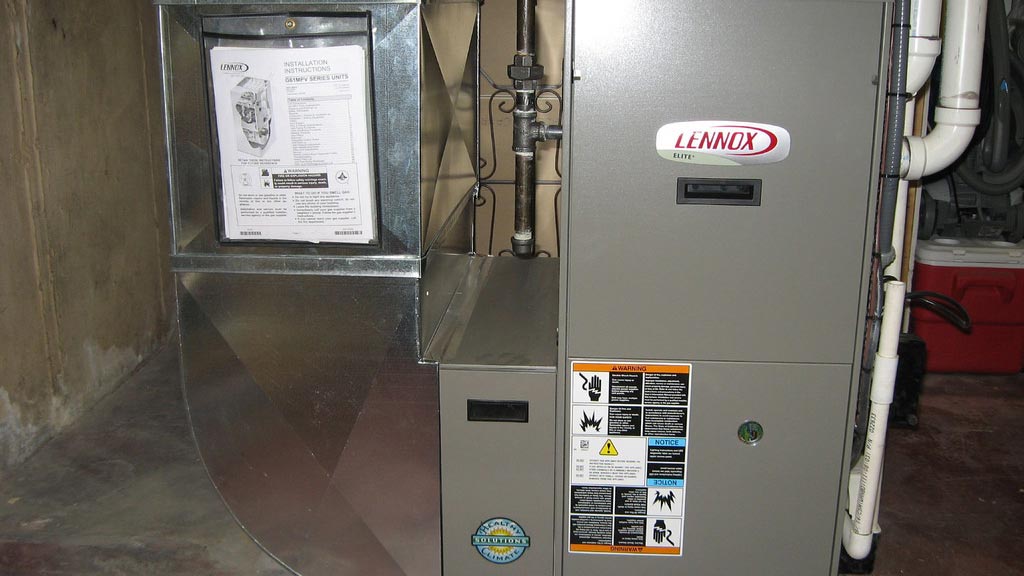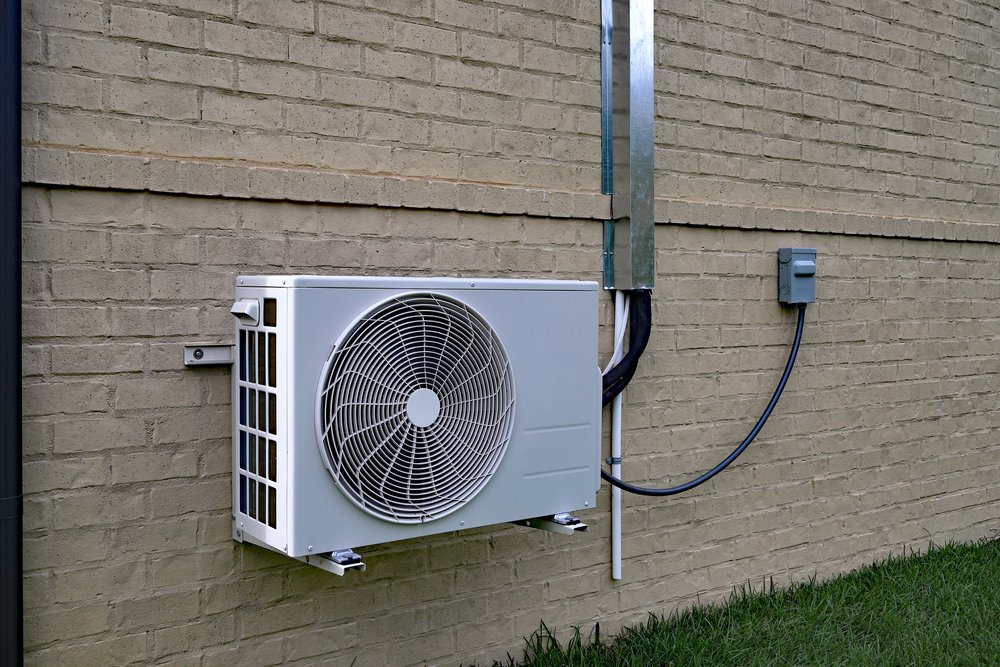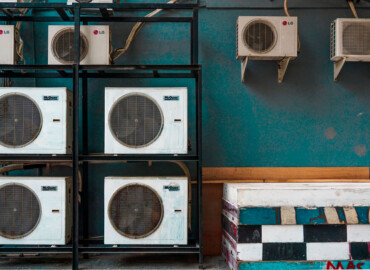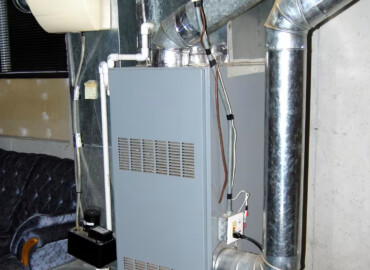HVAC Installation & Replacement Cost
When it comes to keeping your home comfortable year-round, having the right HVAC system is essential. However, understanding the cost of HVAC installation and replacement can be challenging. In this comprehensive guide, we will explore the factors that influence the cost of HVAC systems, and the different types of systems available, and provide an overview of the average costs in Canada. Whether you’re considering a central air conditioning system, a ductless split system, or a heat pump, this guide will help you make an informed decision and find the best solution for your home.
Before diving into the costs, it’s important to have a basic understanding of HVAC systems. HVAC stands for Heating, Ventilation, and Air Conditioning, and it refers to the system that provides heating and cooling to your home. HVAC systems can vary in size, type, and features, but they all serve the same purpose of creating a comfortable indoor environment.
There are several types of HVAC systems commonly used in residential settings, including forced air systems, hot water heating systems, window and portable air conditioning systems, central heat pumps, gas furnaces, ductless systems, and ducted air conditioning systems. Each type has its own advantages and considerations, which we will explore in more detail.
Factors Affecting HVAC Installation and Replacement Cost
The cost of installing or replacing an HVAC system can vary depending on several factors. Here are some key considerations that can influence the overall cost:
- System Type: The type of HVAC system you choose will have a significant impact on the cost. Central air conditioning systems and heat pumps tend to be more expensive than window or portable units. Ductless systems and ducted air conditioning systems may also have different cost implications.
- System Size: The size of the HVAC system needed for your home is determined by factors such as the square footage of your space, the number of rooms, and the climate in your area. Larger homes typically require more powerful systems, which can increase the overall cost.
- Brand and Features: Different HVAC brands offer various price points and features. Higher-end brands may come with a premium price tag but offer additional benefits such as energy efficiency and advanced technology. It’s important to research different brands and choose one that aligns with your needs and budget.
- Labor and Installation: The cost of labor and installation is a significant part of the overall expenses. Hiring professional HVAC contractors ensures that the system is installed correctly and optimally. Labor costs can vary based on the complexity of the installation, the location of your home, and any additional work required, such as ductwork installation or upgrades.
- Additional Upgrades and Accessories: Depending on your specific needs, you may require additional upgrades or accessories for your HVAC system. These can include features such as programmable thermostats, air purifiers, humidifiers, or zoning systems. Each of these additions can impact the overall cost.
- Energy Efficiency: Energy efficiency is an important factor to consider when choosing an HVAC system. While more energy-efficient systems may have a higher upfront cost, they can provide long-term savings on energy bills. Look for systems with high SEER (Seasonal Energy Efficiency Ratio) ratings, Energy Star certifications, and other energy-saving features.
- Government Rebates and Incentives: In Canada, there are government rebate programs and incentives available for energy-efficient HVAC systems. These programs can help offset the cost of installation and promote sustainability. It’s worth exploring these options and determining if you qualify for any financial assistance.
HVAC Systems Installation and Replacement Costs In Canada
Now that we’ve covered the key factors influencing HVAC installation and replacement costs let’s explore the different types of HVAC systems and their average costs in Canada.
1. Central Air Conditioning Installation Cost
Central air conditioning systems are among the most popular choices for cooling entire homes. They consist of an indoor air handler and an outdoor condenser unit. The average cost for a professional installation of a central air conditioning system in Ontario ranges from $3,500 to $6,000. Factors such as the size of the unit, efficiency ratings (SEER), and any additional upgrades or accessories can impact the final cost.
2023 Central Air Conditioner Prices by Tier
When it comes to central air conditioner prices, it’s important to consider the brand and the specific models offered. Prices can vary based on the brand’s reputation, features, and overall quality. Here is a breakdown of central air conditioner prices by brand:
Economy Tier:
- Goodman: $2800-$3800
- Keep rite: $2800-$3800
- York: $2800-$3800
Mid-range:
- Amana: $3000-$5000
- American Standard: $3000-$5000
- Bryant: $3000-$5000
- Napolean: $3000-$5000
- Rheem: $3000-$5000
- Trane: $3000-$5000
Premium Tier:
- Lennox: $3500- more than $7000
- Carrier: $3500- more than $7000
Air Conditioner Prices by Unit Size and weight
The size and weight of the air conditioner unit you choose will depend on the size of your home or commercial space. Here is a breakdown of air conditioner prices based on unit size and weight:
| Unit Size (lbs) | Economy Tier | Mid-range | Premium Tier |
|---|---|---|---|
| 3.5k | $2500 | $2800 | $3000 |
| 4.5k | $2500 | $3000 | $3500 |
| 6.5k | $3000 | $3500 | $4000 |
| 9k | $3500 | $3800 | $5000 |
| 11k | $3500 | $4000 | $6000 |
Air Conditioner Installation Costs
The cost of air conditioner installation can vary depending on the complexity of the installation process and the specific requirements of your home. Hiring a professional HVAC contractor is crucial to ensure a proper installation. Here are some factors that can affect the cost of installation:
- Complexity of the installation: The layout and design of your home can impact the installation cost. Additional work may be required to install the air conditioner properly.
- Age of the existing system: If you are replacing an old air conditioner, additional work may be needed to remove the old unit and prepare the space for the new installation.
- Additional components: Depending on your home’s configuration, additional components such as ductwork or electrical upgrades may be necessary, adding to the overall cost.
- Location: Prices may vary depending on your location and local market trends. Urban areas may have higher competition, leading to more competitive pricing.
It is recommended to obtain quotes from multiple contractors to compare prices and services offered. While it may be tempting to choose the lowest price, prioritize quality and expertise in HVAC installation.
Air Conditioner Prices by City and region
The cost of purchasing and installing an air conditioner can vary from city to city and region to region. Here is a breakdown of average air conditioner prices in various cities and regions across Canada:
Ontario:
- Barrie: $3000 – $4500
- Brampton: $2000 – $4500
- Kingston: $3000 – $4500
- Guelph: $2500 – $4000
- Hamilton: $2500 – $4000
- Kitchener: $2500 – $4000
- London: $2500 – $4000
- Mississauga: $2000 – $4000
- Northern Ontario: $3000 – $4500
- Western Ontario: $2000 – $4000
- Ottawa: $3000 – $5000
- Toronto: $2000 – $4500
- Manitoba:
- Winnipeg: $3000 – $4000
Alberta:
- Calgary: $3000 – $4000
- Edmonton: $3000 – $4000
Saskatchewan:
- Regina: $3000 – $4000
Average Across Canada:
- Average: $3000 – $5000
Additional Information: If your home already has a furnace, opting for a split system air conditioner can save on installation costs. Make sure to consult with a professional HVAC contractor to determine the best option for your specific needs.
2. Heat Pumps Installation Cost
Heat pumps are versatile systems that provide both heating and cooling. They work by transferring heat indoors during winter and outdoors during summer. The average cost of installing a heat pump in Canada ranges from $4,100 to $7,000. Factors such as the type and brand of equipment, necessary permits, and labor costs can impact the total cost.
To provide you with a general idea of the average costs, we have researched the current market prices for different types of heat pumps.
| Type of Heat Pump | Unit Cost Range | Installation Cost Range |
|---|---|---|
| Air-Source | $6,000 – $15,000 | $1,500 – $5,000 |
| Geothermal | $20,000 – $40,000+ | $10,000 – $30,000+ |
| Ductless Mini-Split | $3,000 – $7,000 | $1,000 – $3,000 |
| Gas-Fired | $5,000 – $10,000 | $2,000 – $4,000 |
These cost ranges are approximate and can vary depending on various factors such as location, additional installation requirements, and the specific features of the heat pump system. It is recommended to obtain quotes from multiple installers to find the best price and quality for your specific needs.
Air-Source Heat Pumps: Affordable and Efficient
Air-source heat pumps are the most common and affordable type of heat pump in Canada. They can provide both heating and cooling for your home by extracting heat from the outdoor air and transferring it indoors during the colder months. The average unit cost for an air-source heat pump ranges from $6,000 to $15,000, while the installation cost can range from $1,500 to $5,000.
One of the advantages of air-source heat pumps is their energy efficiency. According to the U.S. Department of Energy, heat pumps can produce 1.5 to 3 times more energy than they consume. This translates to significant savings on energy bills for homeowners. Additionally, air-source heat pumps require minimal maintenance and can last up to 20 years with proper care.
It’s important to note that air-source heat pumps are most effective in moderate climates where the average temperature doesn’t typically drop below freezing. In colder regions, homeowners can combine their air-source heat pump with a furnace to create a dual-fuel system for more efficient heating.
Geothermal Heat Pumps: High Efficiency at a Higher Cost
Geothermal heat pumps are known for their exceptional energy efficiency and long-term cost savings. These heat pumps utilize the stable temperature of the ground to heat and cool buildings. While geothermal heat pumps offer significant benefits, they come with a higher upfront cost compared to air-source heat pumps.
The average unit cost for a geothermal heat pump ranges from $20,000 to $40,000 or more, while the installation cost can range from $10,000 to $30,000 or more. The higher cost is primarily due to the extensive work involved in installing the underground loop of pipes, known as a heat exchanger, which collects and stores the ground’s constant temperature. However, geothermal heat pumps can result in substantial energy savings over time, making them a worthwhile investment for homeowners looking to reduce their carbon footprint and lower their energy bills.
It’s important to consider your home’s location and available space when deciding on a geothermal heat pump. The pipes for the heat exchanger need to be laid in dug-out trenches at least 4 feet deep, which can impact the overall cost of installation. Consulting with a professional installer is recommended to determine if a geothermal heat pump is suitable for your property.
Ductless Mini-Split Heat Pumps: Affordable and Flexible
Ductless mini-split heat pumps offer a cost-effective solution for homeowners who do not have existing ductwork in their homes. These heat pumps consist of a small indoor unit connected to an outdoor unit and can be installed in individual zones or rooms. They are ideal for smaller homes or areas that require heating and cooling on a zone-by-zone basis.
The average unit cost for a ductless mini-split heat pump ranges from $3,000 to $7,000, while the installation cost can range from $1,000 to $3,000. The lower installation cost is due to the simplified installation process, as no ductwork is required. Ductless mini-split heat pumps are highly efficient and allow for precise temperature control in different areas of the home, resulting in energy savings and improved comfort.
It’s important to determine the number of zones or rooms you want to heat and cool before selecting a ductless mini-split heat pump. Each indoor unit corresponds to a specific zone, and additional units may be required for larger homes or multiple rooms.
Gas-Fired Heat Pumps: Efficient Heating for Large Spaces
Gas-fired heat pumps, also known as hybrid heat pumps, combine the benefits of a heat pump with a gas furnace. These systems are ideal for larger homes or commercial buildings that require heating and cooling in multiple zones. Gas-fired heat pumps rely on natural gas as their primary fuel source, providing efficient heating and cooling throughout the year.
The total average cost for a gas-fired heat pump and installation ranges from $5,000 to $10,000. The installation cost can range from $2,000 to $4,000, depending on the specific requirements of the system and the size of the space being heated and cooled.
Gas-fired heat pumps are known for their ability to support large rooms and buildings, making them popular in commercial settings. However, they can also be used in residential homes larger than 4,000 square feet. It’s important to consider the availability of natural gas in your area and consult with a professional installer to determine if a gas-fired heat pump is suitable for your property.
3. Gas Furnaces Installation Cost
Gas furnaces are commonly used for heating homes in Ontario. They burn natural gas to generate heat, which is then distributed throughout the house via ducts or vents. The average cost of replacing and installing a gas furnace ranges from $2,500 to $5,000. Factors such as the size of the furnace, efficiency ratings, and any additional upgrades or accessories can influence the final cost.
Popular Gas Furnace Brands With Prices
Several reputable brands offer high-quality gas furnaces in Canada. Here are some of the most popular brands and their approximate price ranges:
- Lennox: Lennox gas furnaces are known for their energy efficiency and reliability. The price range for Lennox gas furnaces typically starts from $2,500 and can go up to $5,500 or more.
- Carrier: Carrier gas furnaces are renowned for their performance and durability. The price range for Carrier gas furnaces usually ranges from $2,500 to $6,000 or more.
- Trane: Trane gas furnaces are recognized for their quality and innovation. The price range for Trane gas furnaces generally starts from $2,500 and can go up to $5,500 or more.
- Goodman: Goodman gas furnaces offer a balance between affordability and reliability. The price range for Goodman gas furnaces typically starts from $1,500 and can go up to $3,500 or more.
These price ranges are estimates and can vary based on factors such as the model, size, efficiency rating, and additional features of the gas furnace.
The Cost of Gas Furnace Installation in Canada
The cost of gas furnace installation in Canada can vary depending on the factors mentioned earlier. To give you a general idea of the price range, here is an approximate breakdown of costs:
- Cost of Gas Furnace Unit: The cost of the gas furnace itself can range from $2,500 to $6,000 for a basic model. High-efficiency or premium models can cost $6,000 or more.
- Cost of Labor: Hiring a professional HVAC contractor for the installation can cost between $1,000 and $3,000, depending on the complexity of the installation and the contractor’s rates.
- Cost of Ductwork Modifications: Depending on the modifications required, additional costs for ductwork modifications can range from $500 to $2,000.
- Cost of Permits and Inspections: Permit fees can range from $100 to $500, depending on your location. Inspection fees, if applicable, should also be considered.
- Cost of Additional Components: Upgrades such as programmable thermostats, air purifiers, or zoning systems can add anywhere from $100 to $1,500 to the total cost, depending on the specific upgrades chosen.
It’s important to note that these cost ranges are estimates and can vary based on factors specific to your installation.
4. HVAC Ductless Systems Installation Cost
Ductless air conditioning systems, also known as ductless mini-split systems, are ideal for homes without existing ductwork or for specific zones within a home. These systems consist of an outdoor unit and one or more indoor units that are mounted on walls or ceilings. The average cost of installing a ductless system in Ontario ranges from $2,500 to $3,000 per unit. Factors such as the number of outdoor and indoor units required, brand, output rating, and location can impact the total cost.
Cost Breakdown by Province
The cost of installing ductless air conditioning can also vary by province. Here is a breakdown of the average installation cost in different provinces across Canada:
| Province | Average Installation Cost |
|---|---|
| Ontario | $4,500 – $7,500 |
| Quebec | $4,000 – $6,500 |
| British Columbia | $4,500 – $7,000 |
| Alberta | $4,500 – $6,500 |
| Manitoba | $4,000 – $6,000 |
| Saskatchewan | $4,000 – $6,000 |
| Nova Scotia | $4,500 – $6,500 |
| New Brunswick | $4,000 – $6,000 |
| Newfoundland and Labrador | $4,500 – $6,500 |
| Prince Edward Island | $4,000 – $6,000 |
These figures are approximate and can vary based on the specific circumstances of your installation.
Additional HVAC Installation or Replacement Considerations
When considering HVAC installation or replacement, there are a few additional factors to keep in mind:
- Maintenance and Service Costs: Regular maintenance is essential for keeping your HVAC system running efficiently and prolonging its lifespan. It’s important to factor in ongoing maintenance and service costs when budgeting for your HVAC system.
- Financing Options: If the upfront cost of installing or replacing an HVAC system is a concern, it’s worth exploring financing options. Many HVAC companies offer financing plans or partnerships with financial institutions to help homeowners manage the cost over time.
- Warranty and After-Sales Support: Consider the warranty and after-sales support offered by HVAC manufacturers and contractors. A comprehensive warranty can provide peace of mind and protect your investment. Additionally, reliable after-sales support ensures that any future issues or maintenance needs are promptly addressed.
- Energy Efficiency and Cost Savings: Investing in an energy-efficient HVAC system can lead to long-term cost savings on energy bills. Look for systems with high SEER ratings and Energy Star certifications to maximize energy efficiency and reduce your carbon footprint.
Conclusion
When it comes to HVAC installation and replacement costs in Canada, several factors come into play. The type of system, size, brand, labor, and additional upgrades all contribute to the overall cost. It’s essential to research different options, obtain multiple quotes from reputable HVAC contractors, and consider long-term energy savings when making a decision.
By understanding the factors influencing HVAC costs and the different types of systems available, you can make an informed choice that meets your needs and budget. Remember to explore government rebates and incentives and consider ongoing maintenance and service costs when budgeting for your HVAC system.
With the right HVAC system, you can enjoy year-round comfort and energy efficiency in your home. Invest in a reliable and reputable HVAC contractor to ensure proper installation and optimal performance of your system. Stay comfortable, save money, and make the most of your HVAC investment!

